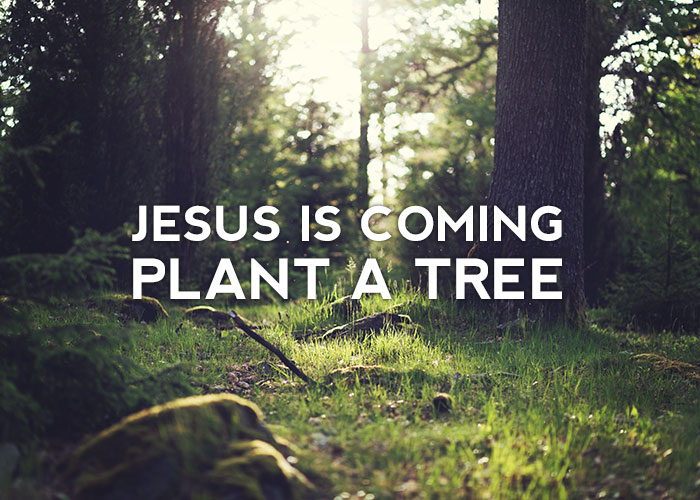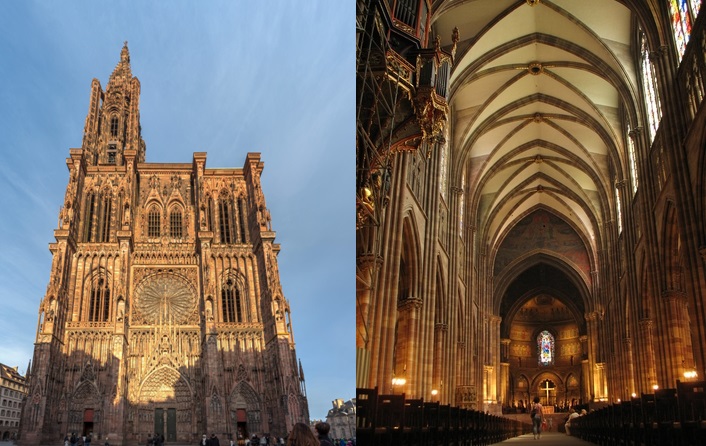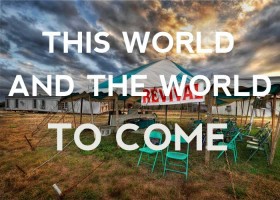JESUS IS COMING – PLANT A TREE

Written by Doug Ponder on August 2, 2014
Jesus Is Coming… Plant a Tree?
“If I knew that tomorrow was the end of the world, I would plant an apple tree today.”
Those aren’t the words of a tree-hugging hippie. They are, purportedly, the words of Martin Luther! (The words don’t appear in Luther’s writings, but some think they were a proverb he was fond of saying.)
Whether Martin Luther actually said those words or not is beside the point. The question is, does that idea agree with the teachings of Scripture and make sense within its story?
So ask yourself: If you knew that the world would end tomorrow, would you plant a tree today?
But before you answer, consider that it’s not an environmental question, but an eschatological one. It’s not a question about the relative value of trees, but a question about what will happen when Jesus returns. Will the world be burned up, trees and all? Or will something else happen?
You might be tempted to think, “This is a topic that only a theologian could love,” but you’d be wrong. This idea matters because what you believe about tomorrow determines how you live today. Always. You can’t help it. No one can. What we think about the future always directs how we live in the present.
The Return of Jesus
For Christians (those who profess allegiance to Jesus as Lord and humbly receive his gracious offer of forgiveness), our beliefs about what will happen at the return of Jesus has the single greatest impact on how we live in the present. In other words, what you believe Jesus will do when he returns shapes how you live right now, even if you’re not aware of it.
Suppose you believe that Jesus is going to return very soon to snatch his followers out of the world, to destroy the earth, and to whisk his people away to live with him in the heavenly clouds forever.
If that’s what you believe, then I’d be willing to bet seven autographed copies of the Left Behind series that you don’t think much of Christian efforts to improve society. Just kidding. I don’t have any copies of the Left Behind books. But I’m not kidding about the pessimism you probably feel toward long-term projects aimed at cultural renewal. What’s the point, you probably think. Why waste time polishing the brass on a sinking ship?
But there’s another group of Christians who understand the return of Jesus very differently. Stretching back from the earliest Christians right down through Martin Luther, John Calvin, and the Puritans who helped establish America, most Christians have believed that Jesus will not be returning to destroy, but to renew. He will not return to the earth to say, “Away with this irredeemable thing! Let’s start over.” Rather, he will come again to the world that he made, and he will renew it completely with the same power that raised him from the dead. Nothing is beyond the reach of his redemption. That’s why he says, “I am making all things new” (Rev. 21:5).
(For more on the Bible’s teaching about the return of Jesus, read “This World and the World to Come.”)
Planting “Trees” for Jesus
Now that we’re clear on what Jesus won’t do when he returns, let’s get back to this tree planting business. The central point is that long-term projects aimed at cultural renewal are worth our time and our efforts and our prayers, whether or not Jesus returns in the very near future.
If Jesus returns tomorrow, we have every reason to believe that whatever little we accomplished today will somehow be retained, absorbed, transmuted into a God-glorifying reality in that future world. That is why Paul tells us, “your work in the Lord is not in vain” (1 Cor. 15:58).
But if Jesus delays his return for another ten thousand years (maybe more!), then we’ll not be guilty of fleeing for lifeboats when the ship could have been saved. This sort faith in Jesus’ future work frees us from a frantic life of “searching for signs of the end times,” to devote ourselves wholly and patiently to projects that may not be completed in our lifetimes.
Consider this beautiful structure, for example.
That is the Strasbourg Cathedral. (I saw it when I was 15, but my Kodak disposable camera couldn’t quite capture its glory so I had to borrow some pics from the interwebs.) It was the tallest structure in the world from 1647 until 1874, and it was built as a visual display and symbolic representation of God’s own splendor and majesty. Here’s the real wonder: it took almost four hundred years to complete. Four hundred years!
Meanwhile, most of us can’t fathom working on the same project for four days. Yet there it is, in all its beauty and magnificence, a stunning example of what happens when a culture has the long view of things.
We need to recapture that same sort of thinking, that same patient persistence and that same humble acknowledgement that the most important things we do in this life will probably not bear fruit until many years later, perhaps long after we’re gone.
It’s that way with children. The Bible verse that calls children a “blessing” is actually referring to the blessing of grown children well-raised in the faith of their fathers. This is why God’s people are in one place referred to as “oaks of righteousness,” like trees planted that have now matured after many years.
It’s that way with churches. A church is the people, not the building, but that’s even more of a reason to have this long-term patience and persistence. God calls us to pass our faith on to the next generation and the one after that, just as every generation of faithful Christians has done before us. This is why people sometimes talk of “church plants” or “planting churches.” The goal isn’t a sapling, but a healthy “tree” whose “branches” provide shade and shelter to all nearby.
It’s that way with society. Rome wasn’t built in a day, and cultural renewal (whatever degree will be had before the return of Jesus) won’t happen in a day either. This will take the selfless work of years and years and years of countless Christians working together on whatever little they can, trusting God to work the little threads of their lives into his giant tapestry.
So, if you knew that tomorrow was the end of the world, would you plant a tree today? You absolutely should, and that’s true no matter what kind of tree we’re talking about, whether apples, children, churches, or cities.
Doug Ponder is one of the founding pastors of Remnant Church in Richmond, VA, where he serves in many of the church’s teaching ministries. He has contributed to several published works and is the author of Rethink Marriage & Family. His interests include the intersection of theology, ethics, and the Christian life. Follow him on Twitter @dougponder.
2 thoughts on “JESUS IS COMING – PLANT A TREE”
2 thoughts on “JESUS IS COMING – PLANT A TREE”
-
Pingback: Reduslim prezzo in farmacia








Pingback: IN THE WORLD, NOT OF THE WORLD - Remnant Resource
Pingback: Reduslim prezzo in farmacia